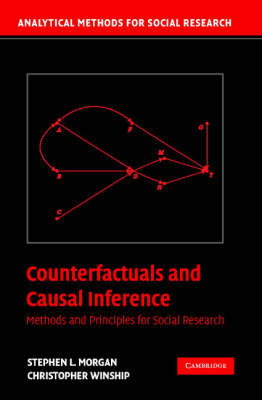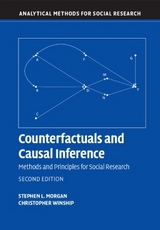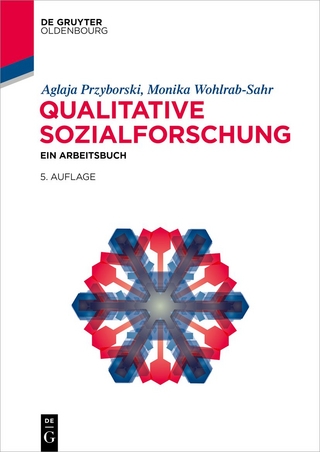
Counterfactuals and Causal Inference
Cambridge University Press (Verlag)
9780521671934 (ISBN)
- Titel erscheint in neuer Auflage
- Artikel merken
Did mandatory busing programs in the 1970s increase the school achievement of disadvantaged minority youth? Does obtaining a college degree increase an individual's labor market earnings? Did the use of the butterfly ballot in some Florida counties in the 2000 presidential election cost Al Gore votes? If so, was the number of miscast votes sufficiently large to have altered the election outcome? At their core, these types of questions are simple cause-and-effect questions. Simple cause-and-effect questions are the motivation for much empirical work in the social sciences. This book presents a model and set of methods for causal effect estimation that social scientists can use to address causal questions such as these. The essential features of the counterfactual model of causality for observational data analysis are presented with examples from sociology, political science, and economics.
Stephen L. Morgan is Associate Professor of Sociology and the current Director of the Center for the Study of Inequality at Cornell University. His previous publications include On the Edge of Commitment: Educational Attainment and Race in the United States (2005). Christopher Winship is Diker-Tishman Professor of Sociology at Harvard University. For the past twelve years he has served as editor of Sociological Methods and Research. He has published widely in a variety of journals and edited volumes.
Part I. Counterfactual Causality and Empirical Research in the Social Sciences: 1. Introduction; 2. The counterfactual model; Part II. Estimating Causal Effects by Conditioning: 3. Causal graphs, identification, and models of causal exposure; 4. Matching estimators of causal effects; 5. Regression estimators of causal effects; Part III. Estimating Causal Effects When Simple Conditioning Is Ineffective: 6. Identification in the absence of a complete model of causal exposure; 7. Natural experiments and instrumental variables; 8. Mechanisms and causal explanation; 9. Repeated observations and the estimation of causal effects; Part IV. Conclusions: 10. Counterfactual causality and future empirical research in the social sciences.
| Erscheint lt. Verlag | 30.7.2007 |
|---|---|
| Reihe/Serie | Analytical Methods for Social Research |
| Zusatzinfo | 30 Tables, unspecified |
| Verlagsort | Cambridge |
| Sprache | englisch |
| Maße | 150 x 227 mm |
| Gewicht | 454 g |
| Themenwelt | Sozialwissenschaften ► Soziologie ► Empirische Sozialforschung |
| ISBN-13 | 9780521671934 / 9780521671934 |
| Zustand | Neuware |
| Informationen gemäß Produktsicherheitsverordnung (GPSR) | |
| Haben Sie eine Frage zum Produkt? |
aus dem Bereich



